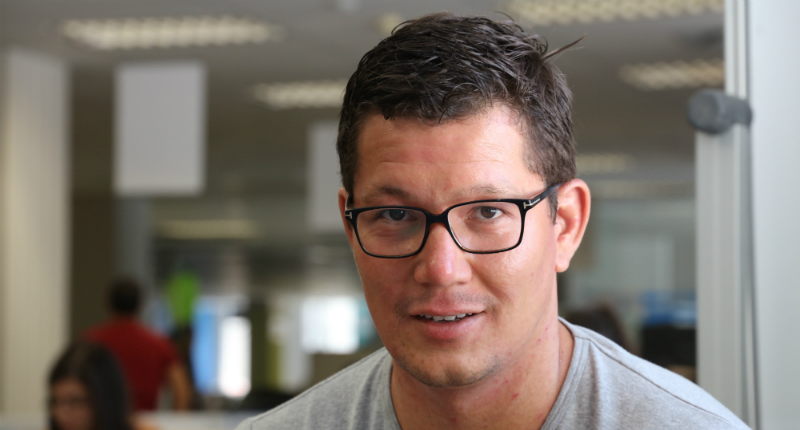South Africa’s smallest businesses are punching above their weight when it comes to job creation – but the system is still actively working against…
Silicon Valley VC model doesn’t work in Africa, argues Silvertree Holdings man

The Silicon Valley venture capital (VC) model doesn’t work in Africa and other emerging markets, argues Manuel Koser, the managing director and co-founder of Silvertree Internet Holdings.
The funder likes to refer to itself as a “investment growth partner” holding stakes for a longer period in those it invests in than your traditional seven to eight years that most VC funds do.
The fund counts Pricecheck.co.za, CompareGuru.co.za, Petheaven.co.za, Faithful-to-nature.co.za, Cybercellar.com, aumax.co, Ucook.co.za and CarZar.co.za among its investments.
Koser’s latest remarks — made in an emailed article to Ventureburn — follow those made in November last year by co-founder Paul Cook.
Cook at the time charged that African angel investors and accelerators are doing a disservice to entrepreneurs by mimicking the Silicon Valley model of glorifying the pitching of ideas – rather than helping entrepreneurs to better execute on these ideas (read more here).
In search of unicorns
Koser argues that to have a fund that is self-sustaining, one needs about $25-million in assets under management. “But in an emerging market context, it’s incredibly difficult to find enough quality businesses to invest in to hit that number,” he adds.
At smaller numbers, however, say two or five million dollars deployed, the fund’s economics cease to make sense he says.
The Silicon Valley VC model doesn’t yet work in emerging markets, argues the co-founder of Silvertree Internet Holdings
He says this often leads to poor risk-adjusted investments, as well as limited due diligence due to cost constraints. “In funds operating with, say, $10-million dollars or less, the entrepreneur – the fund’s general partner – also often starts to overcharge the fund,” Koser adds.
“This suppresses returns. Investors soon begin to feel that they should rather have put their money in, say, the JSE, given that the All Share Index earned an annualised return of around 10% per annum over the past 10 years. And which would have been a liquid investment too, versus the illiquid private investment of a VC.”
The core is this: “Most emerging markets are simply not ready. You’re often chasing unicorns in a small market that’s not yet scaling.”
Implications for startups
Far too often, says Koser, startups in emerging markets are also coached to follow the “Silicon Valley” model – finding a disruptive idea, building a proof of concept or minimum viable product, and then hitting the pitching circuit to secure VC funding. If the VC model doesn’t work, however, what does this mean for these startups?
“New businesses in emerging markets normally need to focus much earlier on viable unit economics and even profitability than in established VC hotspots.
Secondly, they need to look beyond classic VCs to other capital sources – which absolutely do exist. Complaining that, “VCs don’t support startups,” misses the point that the VC model itself struggles – so startups need to change their approach to capital access.’
A reality check on returns
Koser notes that the European Investment Fund, for example, recently revealed that its 10-year net annualised VC returns were just five percent, though the numbers are picking up a little more, now, he adds.
“Even on global basis, venture capital as an asset class does not outperform the S&P 500. Meaning VC on average also doesn’t justify the risk, given the illiquidity of the investments,” he says.
So, why the glow? Why invest in VC at all? “Because the top funds – even the top quartile of funds – are completely outperforming,’ notes Koser. “There, you’re seeing exceptional returns, which are becoming self-fulfilling prophecies.”
Write-ups and write-offs
“Take a typical group of 10 companies in which a VC firm invests. In a normal scenario, many of those companies will simply be written off,” Koser explains. “One or two will pay back their investments. One may double or triple investors’ money.
“So then, out of those 10, one company needs to make 50 or a 100 times its investment if the fund is to make decent returns. This is very hard to do in a small market as exits north of $100-million are very rare.”
Koser emphasises: “Exits of that magnitude are only possible with scale. Which is why emerging markets often can’t deliver. Of course, it’s possible for a South African entrepreneur to create a world-beating product with global scale, but it’s incredibly difficult.
“You’re at a disadvantage if you’re trying to build a global business out of an emerging market because you’re competing with developed market networks and capital.
“If on the other hand, if you’re in an emerging market trying to make a product for that emerging market, the local market is often very small. It’s the reason why many emerging market VCs with only five to $10-million on their books are unhealthy – they’re scrambling for cash,” argues Koser.
Read more: Silvertree founder takes aim at Silicon Valley model of building African startups
Read more: Silvertree Capital acquires Nigeria’s TopCheck
Read more: A Day in the Life of: Silvertree Capital VC Manuel Koser [Native Article]
Read more: CarZar gets backed by Silvertree Capital
Featured image: Silvertree Internet Holdings co-founder Manuel Koser

